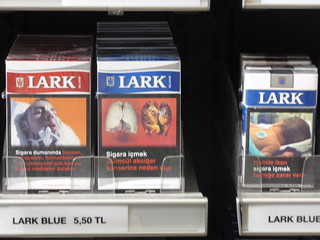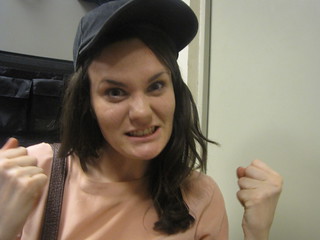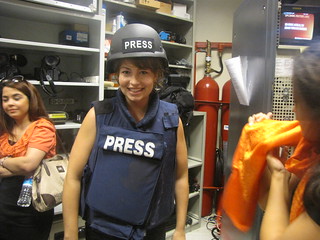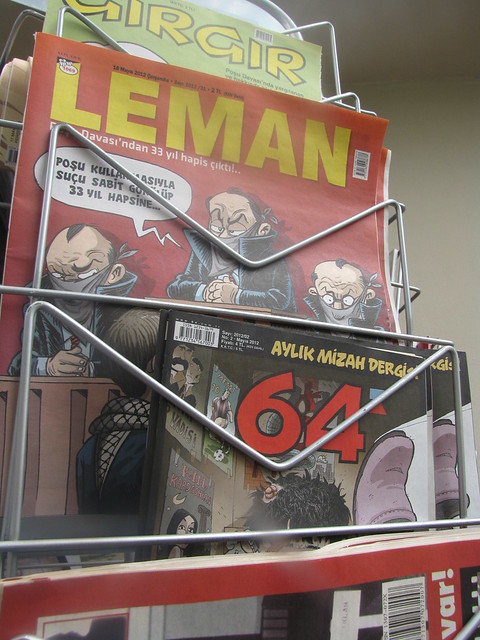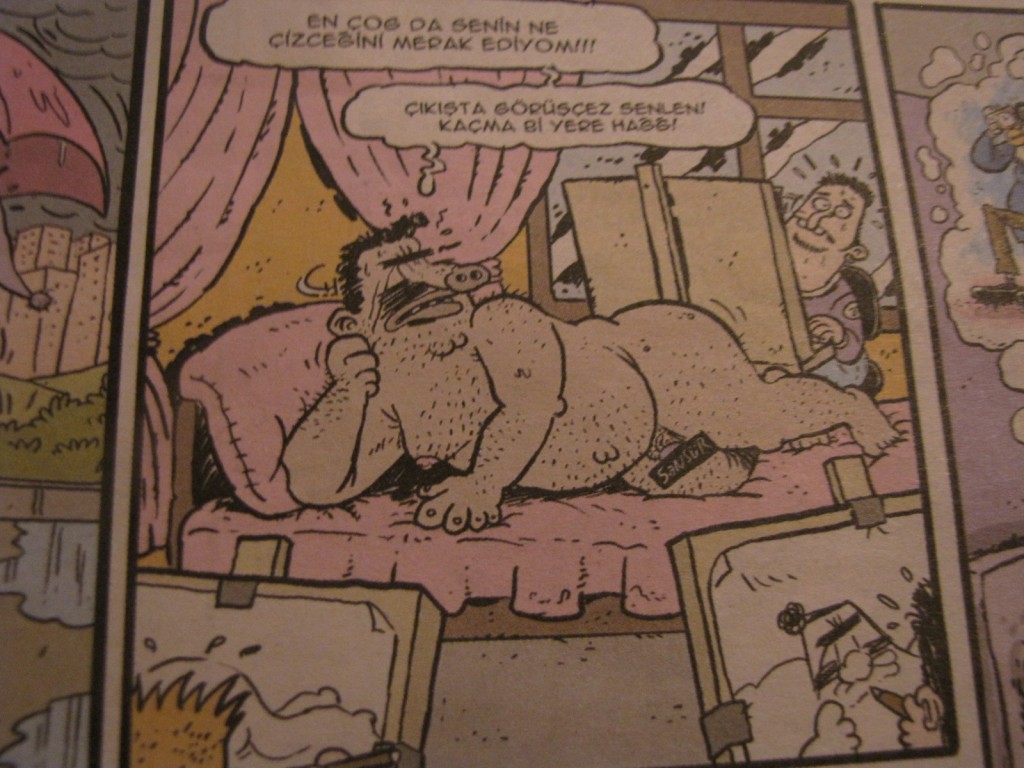We made headlines last week when we met with the Deputy Mayor of Kocaeli, Turkey – the district with highest national GDP. We discussed the business sector, the environment and the construction after the 1999 earthquake. Click here to read more about our visit.
_________________________________________________________________________
Kocaeli is a province involved in an odd dichotomy: it is the most industrious municipality in Turkey as well as the most environmentally friendly – at least, according to Deputy Mayor Özak Zechariah.

The deputy mayor and his translator presenting us with gift bags
Yeah, I was skeptical too.
However, after meeting with Zechariah, it was hard to argue otherwise; especially after drinking Kocaeli’s superb bottled water – bar none, one of the best I’ve ever had- which is processed right in Koccaeli. The water quality reflects the municipality’s water system which is reported to be the world’s largest privately financed water supply project and boasts 7,000 kilometers of underground water tunnels.
Even Kocaeli fish drink clean water now that the local government put restrictions on what nearby chemical, automobile and steel plants can pour into the the Gulf of Izmit, according to officials. For many years, the gulf was fair game and neighboring companies used the waters as their personal waste-basket; as Zechariah put it, “everyone used to know the Gulf of Izmit by its smell.”
But he says the government has worked hard to make the area, along with the entire municipality, more eco-friendly. Ford, Bridgestone, Toyota, Goodyear and others have major plants in Kocaeli – and Zechariah said they have faced some opposition to their green initiatives. One such initiative is SCADA, a control system that monitors what type of waste companies are putting out; he says Kocaeli is the first and only province using this advanced system.
And he says it seems to be paying off.
“For the first time in many years, we can actually see dolphins in the gulf now,” said Zechariah.
Could it be true? Was Kocaeli really the most industrious and the most environmentally aware? I was one water in, and my skepticism was beginning to fade. Kocaeli’s convincing credentials and witching water had swayed me.
After coming home and doing some research, things got murky.
According to the European Environment Agency, Kocaeli, or more specifically Izmit, is home to Izadas, the only hazardous waste site (there are 3 total) in Turkey to accept waste from a variety of industries across the country. It has the capacity to hold 790,000 cubed meters of waste.
Zechariah failed to mention that.
While this bit of information certainly doesn’t discredit all of their advances, it does make the situation more complicated than their PR-driven facade suggested. I have to say, it leaves me wondering, what else weren’t they telling us?
